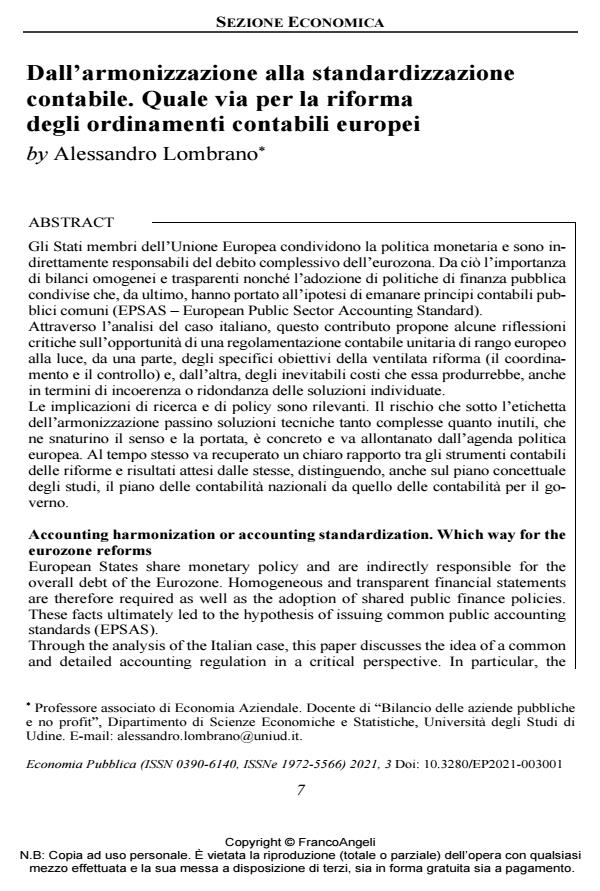Accounting harmonization or accounting standardization. Which way for the eurozone reforms
Journal title ECONOMIA PUBBLICA
Author/s Alessandro Lombrano
Publishing Year 2021 Issue 2021/3
Language Italian Pages 25 P. 7-31 File size 890 KB
DOI 10.3280/EP2021-003001
DOI is like a bar code for intellectual property: to have more infomation
click here
Below, you can see the article first page
If you want to buy this article in PDF format, you can do it, following the instructions to buy download credits

FrancoAngeli is member of Publishers International Linking Association, Inc (PILA), a not-for-profit association which run the CrossRef service enabling links to and from online scholarly content.
European States share monetary policy and are indirectly responsible for the overall debt of the Eurozone. Homogeneous and transparent financial statements are therefore required as well as the adoption of shared public finance policies. These facts ultimately led to the hypothesis of issuing common public accounting standards (EPSAS). Through the analysis of the Italian case, this paper discusses the idea of a common and detailed accounting regulation in a critical perspective. In particular, the objectives of the ventilated reform (coordination and control) are questioned as well as the costs that it would unavoidably produce, the possible inconsistency or redundancy of the identifiable solutions. Research and policy implications are relevant. The harmonization could in fact hide solutions as complex as useless, which is a risk that should be avoided. Conversely, a clear relationship between the accounting instruments and ex-pected results of the reforms must be recovered, also recovering the original pur-pose of National versus Governmental accounting.
Keywords: accounting harmonization, EPSAS, national accounting, accrual ac-counting, governmental accounting
Jel codes: H60, H83
Alessandro Lombrano, Dall’armonizzazione alla standardizzazione contabile. Quale via per la riforma degli ordinamenti contabili europei in "ECONOMIA PUBBLICA " 3/2021, pp 7-31, DOI: 10.3280/EP2021-003001